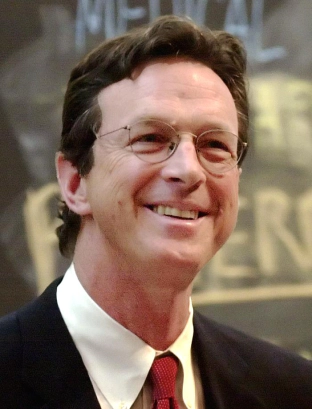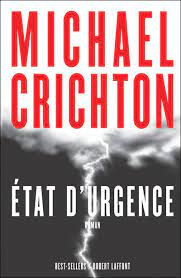There are many novels that tell stories about the climate, the environment, ecology and the struggles to defend its various terms. Among these novels, only one caught our attention, that is Michael Crichton's State of Emergency!
What is state of emergency?
This term can be used to define many situations, e.g. during the health crisis, the President of the Republic called it a state of health emergency (covid 19): During the health crisis, the President of the Republic called it a state of health emergency (covid 19). But, in our case, it is the name of a book written by Michael Crichton.
"State of Emergency" is the story of a billionaire named George Morton who crashes his Ferrari off a cliff just after announcing that he was withdrawing his support for an international environmental movement. Before disappearing, George left a message for his lawyer named Peter and his assistant named Sarah, after decrypting the message. They find themselves travelling the world to fight an enemy who is set to destroy the planet."
This was a short summary of Michael Crichton's novel, if you want the full excerpt of the book, we invite you to visit your local library.

Why State of Emergency?
Michael Cricton wrote this book to denounce the problems concerning ecology, environment, climate and many others. His main goal was to show the world the important issue that would occur in the future years, namely global warming.
future years, especially global warming.
(see article on global warming).
We could also mention the rising waters or many other phenomena that will or have already occurred because of the negligence of people in the world. This is why we categorise it as a fight, a fight to save the planet. By calling his novel State of Emergency, Michael Crichton wanted above all to make his readers react: to show them that time counts. If you are reading this, you have succeeded or it is too late.
From the book,
"Stay there," he said, touching her arm in the darkness. She waited without moving. The smell of the salt water was strong; she could hear the murmur of the water.
When the lights came on, their brilliance was reflected on the surface of the tank, which was about fifty metres long and twenty metres wide. It resembled a large indoor swimming pool, but with the difference that it was surrounded by electronic equipment.
and that a strange machine was at the end of the pool.
Jonathan Marshall returned with a goofy smile on his face.
- What do you think?" he said in French, with his dreadful pronunciation.
- It's beautiful," said the young woman in English.
Jonathan found her accent exotic; everything about her seemed exotic. With her dark skin, high cheekbones and jet hair, she could have been a model. And she walked like a model in a short skirt and high heels. Her name was Maria; she was Eurasian, with a Vietnamese mother.
- Is there no one else here?" she said, looking around the room.
- No, no. It's Sunday. It's Sunday: no one is coming.
Jonathan Marshall was twenty-four years old. He was a postgraduate student in physics in London and was doing a summer internship at the wave mechanics laboratory of the Institut de la Mer, in the northern suburbs of Paris.
- With pleasure.
At the other end of the pool, the thirty panels of the wave machine were set up, one after the other. He turned back to Marisa.
- It's so complicated," she smiled.
She came forward and stood next to him, in front of the control panel.
- Are there cameras filming your work?
- Yes, on the ceiling and on the sides of the tank. They store images of the waves that are produced. There are also pressure sensors that record the parameters of the wave."

